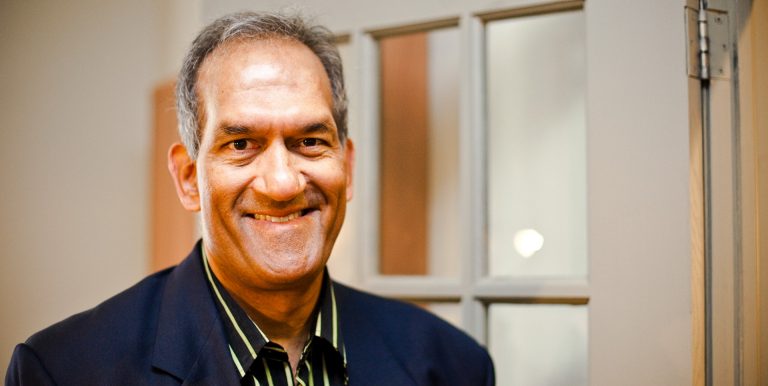Concordia’s Volt-Age takes a new approach to funding future decarbonization projects

Concordia’s Volt-Age is developing innovative ways to facilitate academic research. Through its new Planning for Impact program, the research initiative has set new objectives for funding future studies on decarbonization and electrification.
On June 17, researchers from academia and industry across Canada began a month-long curation process, discussing how academic research can combat climate change and support Canada’s goal of achieving net-zero emissions by 2050.
Christopher Henderson, chair of Volt-Age’s Partnership Committee and a clean energy thought leader, explains that the upcoming funding round will focus on collaborative research initiatives with non-academic partners.
‘We aim to accelerate the application of research’
How has Volt-Age’s approach to funding and supporting projects evolved from its initial seed grant phase to the current impact round?
Christopher Henderson: When we started Volt-Age, we wanted to move quickly, so we used seed grants to engage researchers. In a short time, we identified 36 projects and allocated a significant amount of money, and we believe great results will come from this.
However, now we want to be more deliberative and intentional. We want to ensure that the projects supported by Volt-Age in the impact round are truly substantive.
Is that why, before the call for impact projects, you began the Planning for Impact program?
CH: Yes, we established a series of steps in the Planning for Impact program to conduct research differently. It begins with seeking input from researchers, by asking them what the goals should be for the Impact Projects and living labs in terms of research excellence, partnership collaboration and decarbonization impacts.
What does it mean to “conduct research differently”?
CH: The conventional research process involves funders making a call for research, researchers responding and sometimes funders asking for contributions from partner organizations. However, we aim to create much more substantive and significant partnerships.
For the final submission of proposals for the next round of funding, we want research projects to be created in collaboration with partners, which could include societies, municipalities, Indigenous communities, industry or a combination of these.
How does Volt-Age evaluate the meaningful impact of its funded projects on supporting decarbonization?
CH: By fostering greater collaboration between partners and researchers, we aim to accelerate the application of research. This means creating closer connections between researchers who have been working in the field for a while and the resources they need to advance their work.
These projects could be directly linked to practical applications, such as developing a smart grid in a municipality, reducing fossil fuel usage in industry or decreasing diesel reliance in remote Indigenous communities. The process is designed to increase the impact of research by moving toward the actual implementation of projects.
Find out more about Concordia’s Volt-Age.


